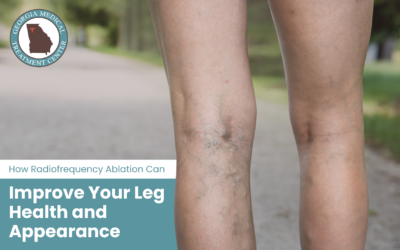Are you looking for a back doctor in Canton? As anyone who has experienced it can tell you, chronic back pain is no joke. When left ignored, back pain makes it difficult to work, manage daily responsibilities and even just move around. Fortunately, with the right treatment, you can address the source of pain and achieve long-term relief. One innovative treatment is radiofrequency ablation (RFA), a minimally invasive procedure that uses heat to treat your pain. In this block, we’ll take a closer look at the RFA procedure for back pain and the unique benefits it offers.
What Is Radiofrequency Ablation for Back Pain?
If you’re new to professional back pain treatments, you might be wondering: What is RFA? Put simply, RFA uses heat generated by radio waves to target nerves that transmit pain signals to the brain. It offers the following benefits:
- Minimally invasive: RFA avoids the complex side effects of surgery. Generally, patients go home right after the procedure.
- Long-lasting results: Unlike many at-home remedies, RFA is designed to provide long-lasting relief.
- Reduced need for medication: By lowering pain levels, RFA can reduce reliance on medication.
Whether at-home remedies aren’t working or you just want to avoid surgery, RFA can help.
Before Your RFA: What to Discuss During Your Consultation
Many people are drawn to RFA due to its non-surgical nature. However, before you can experience this treatment, you’ll need a consultation to determine whether you’re a viable candidate. During this consultation, your back doctor in Canton may inquire about the following:
- Your back pain: Your doctor will want to learn more about your pain, including its source and any symptoms you’re experiencing. If necessary, they may perform diagnostic tests to determine the root cause of the pain.
- Your medical history: In addition to examining your back pain, it’s helpful to understand your medical history (such as any medications you’re taking or other conditions you’ve had). This information helps assess your risk of complications.
- Procedure expectations: Before beginning treatment, your doctor will outline what to expect from the procedure.
Ultimately, this consultation can help your doctor figure out whether RFA is the right treatment for you.
During Your RFA: What Happens During Treatment
Are you interested in radiofrequency ablation for back pain? Here’s what to expect during treatment:
- Numbing: You’ll start by lying down on your stomach. Then, the treatment area will be numbed with a local anesthetic.
- Needle insertion: With the help of X-ray guidance, the doctor will insert a thin needle around the impacted nerves. They’ll also administer a mild electrical current to ensure the right nerves are targeted.
- RFA waves: Once the needle is in place, your doctor will send radiofrequency waves to the nerve tissue. This heat disrupts the nerves, preventing them from sending pain signals to the brain.
Procedure times may vary depending on the extent of pain. However, most patients can expect the entire procedure to last around 30 to 60 minutes.
What to Expect After Your RFA Procedure for Back Pain
Because it’s a minimally invasive procedure, you can expect a relatively quick recovery period after RFA. In fact, most patients can return to their regular schedules within a day. It’s best to avoid more strenuous activities (such as intense workouts) for a few days.
Immediately after treatment, you might feel some mild discomfort around the injection site. If this bothers you, over-the-counter pain relievers can help. Many patients start seeing pain relief results within one to three weeks.
Is RFA Right for You? Contact Our Back Doctor In Canton Today!
From its minimally invasive nature to its quick recovery times, there are many benefits of RFA. However, the procedure isn’t entirely risk-free. As mentioned above, you may experience discomfort immediately after the procedure. Furthermore, pain may return once the nerves regenerate after six to 12 months. If this happens, you can receive RFA again.
It’s also important to note that not everyone is a good candidate for RFA. At Georgia Medical Treatment Center, we perform comprehensive consultations to ensure that RFA is right for you. Our team includes a variety of specialists, all of whom work together to deliver personalized, advanced pain relief. Schedule a consultation today to learn more!




0 Comments